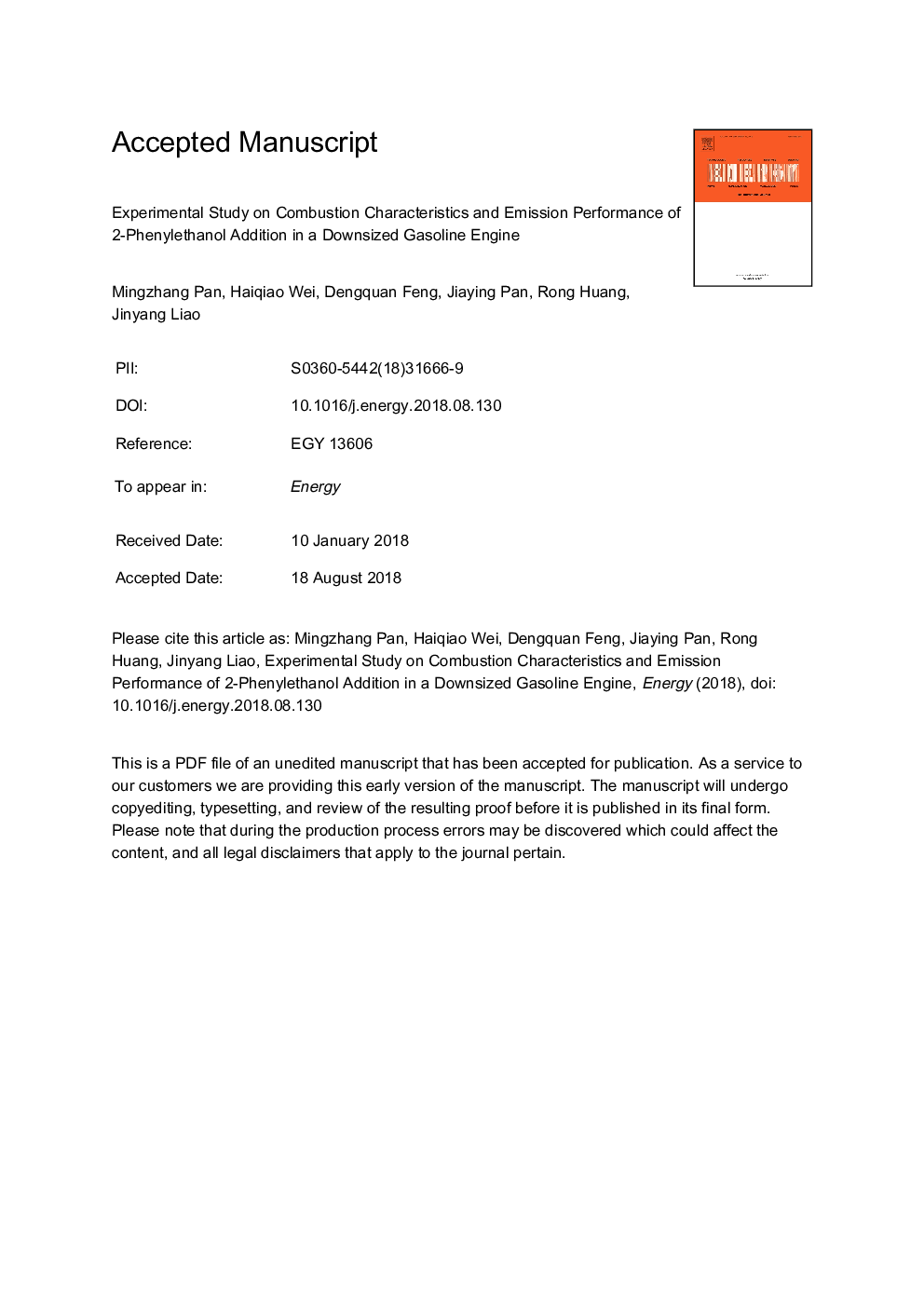| Article ID | Journal | Published Year | Pages | File Type |
|---|---|---|---|---|
| 10136266 | Energy | 2018 | 42 Pages |
Abstract
The anti-knock quality of fuels are of vital importance for improving spark ignition (SI) engine efficiency. 2-pheylethanol (2-PE) is one of potential high-octane booster, which can be derived from lignin as a biomass component. To ascertain the possibility of 2-PE as a bio-additive in SI engines, combustion characteristics and emission performance of 2-PE addition were investigated in a downsized gasoline engine. Blending 2-PE in gasoline resulted to a decrease in cylinder pressure and heat release rate. As increase of 2-PE addition, ignition delay and combustion duration of 2-PE-gasoline become postponed, combustion phasing is retardedï¼ and COVIMEP increased signiï¬cantly. The reason is thought to be correlated with its relatively lower gas-phase reactivity and higher heat of vaporization. At elevated intake pressure, the number of knock cycles and MAPO significantly increased of SI engineï¼addition of 2-PE exhibits good knocking resistance because of its high octane number and physicochemical properties. For regulated gas emissions, 2-PE addition produces more unburned hydrocarbon, carbon oxide and less nitrogen oxides. The blending of 2-PE in gasoline tends to increase particle matter emissions and enlarge the particle size.
Related Topics
Physical Sciences and Engineering
Energy
Energy (General)
Authors
Mingzhang Pan, Haiqiao Wei, Dengquan Feng, Jiaying Pan, Rong Huang, Jinyang Liao,
